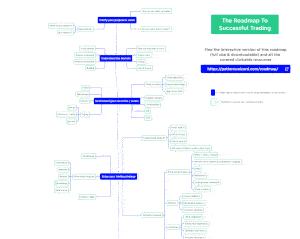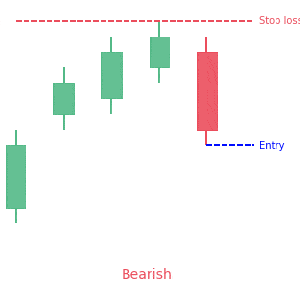Overtrading refers to the excessive and impulsive buying and selling of financial instruments. It is a common problem among traders and investors across all financial markets.
If you wanted to know all about overtrading, then you are on the right platform. Because in this article, we are going to explain the causes of overtrading. Additionally, we’ll also uncover the perils of overtrading and share some effective techniques to prevent it. Let’s begin!
What is overtrading?
Overtrading refers to the excessive and frequent buying and selling of financial instruments. Traders doing so trade impulsively, often beyond their means, or without having a strategy in place. In other words, traders doing overtrading execute a lot of trades in a short period and without any kind of analysis.
There are various causes of overtrading. For example, lack of trading strategy, fear of missing out (FOMO), greed, overconfidence, etc. are among the most common causes. This problem leads traders to face severe consequences like burnout, increased transaction costs, low profits, etc.
Moreover, overtrading significantly affects trading performance and also causes significant losses. Therefore, it is important to understand what causes overtrading and how to avoid it.
What does cause overtrading?
The following are certain factors that can cause overtrading.
1. Lack of trading strategy, discipline, and self-control
A lack of trading strategy, discipline, and self-control is the most common factor. Traders who don’t have a well-defined trading strategy may feel compelled to enter trades even when there is no good trading opportunity.
2. Addiction to financial markets
Addiction to financial markets is another common cause of overtrading. For example, constant monitoring of the market, placing rumor-based trades, emotional trading, etc. are common habits of traders addicted to financial markets.
3. Emotional trading
Emotions are an integral part of human beings. However, trading based on emotions like greed or fear leads to impulsive trading decisions and overtrading.
4. Risk-taking beyond means
Risk-taking beyond means also leads to impulsive trading. Traders who take risks to achieve higher returns trade frequently and fall prey to overtrading.
Dangers of overtrading
Overtrading is dangerous on both psychological and economic fronts. It carries the following perils.
- Excessive trades lead to higher transaction costs such as trading fees, commissions, fees, etc. that reduce overall returns.
- Emotional trading leads to impulsive trades that in turn may cause losses.
- Impulsive trading may also reduce traders’ focus on decision-making. Thus, they may not stay updated with market data and news. They may also feel stressed, take excessive risks, and make poor trading decisions.
- Excessive trading can also cause burnout and make traders victims of low focus and attention for a long time. Reduced motivation and poor performance may also follow burnout which negatively affects overall returns.
- Extravagant trading may also lead traders to concentrate too much on one particular asset or market. It leads to a lack of diversification, excessive risk-taking, and losses.
Effective techniques to avoid overtrading
Overtrading has become a common problem for a vast number of traders. Therefore, it is important to know about some effective techniques to prevent it.
1. Having a trading plan and well-defined trading strategy enables trades to avoid impulsive trades by being well-disciplined.
2. Setting clear and realistic trading goals enables traders to stay focused on long-term achievements. Thus, they can avoid distractions caused by short-term market fluctuations.
3. Quality over quantity is another best approach to avoid entering excessive trades. Always look for good quality trading opportunities instead of entering each risky opportunity.
4. Predefining stop-loss and take-profit levels also enable traders to prevent losses and book profits. Additionally, it also helps to prevent emotional decision-making.
5. Taking breaks from trading every now and then also enables traders to avoid stress and burnout. Recharging batteries through breaks also helps in staying focused and making better trading decisions.
The wrap-up
Overtrading is a serious problem that a majority of traders face. It refers to taking excessive trades without having a clear trading plan and strategy. There are several factors, such as a lack of trading plan and strategy, emotions, etc., that cause excessive trading. Impulsive trading is dangerous on both economic and psychological fronts and traders should avoid it at all costs. However, a combination of a trading plan, strategy, discipline, self-awareness, etc. can help you prevent overtrading. So, take all the necessary steps to avoid impulsive trading to realize your long-term trading objectives.
 Good Trading requires the Best Charting Tool!
Good Trading requires the Best Charting Tool!

 We loved Marwood Research’s course “Candlestick Analysis For Professional Traders“. Do you want to follow a great video course and deep dive into 26 candlestick patterns (and compare their success rates)? Then make sure to check this course!
We loved Marwood Research’s course “Candlestick Analysis For Professional Traders“. Do you want to follow a great video course and deep dive into 26 candlestick patterns (and compare their success rates)? Then make sure to check this course!